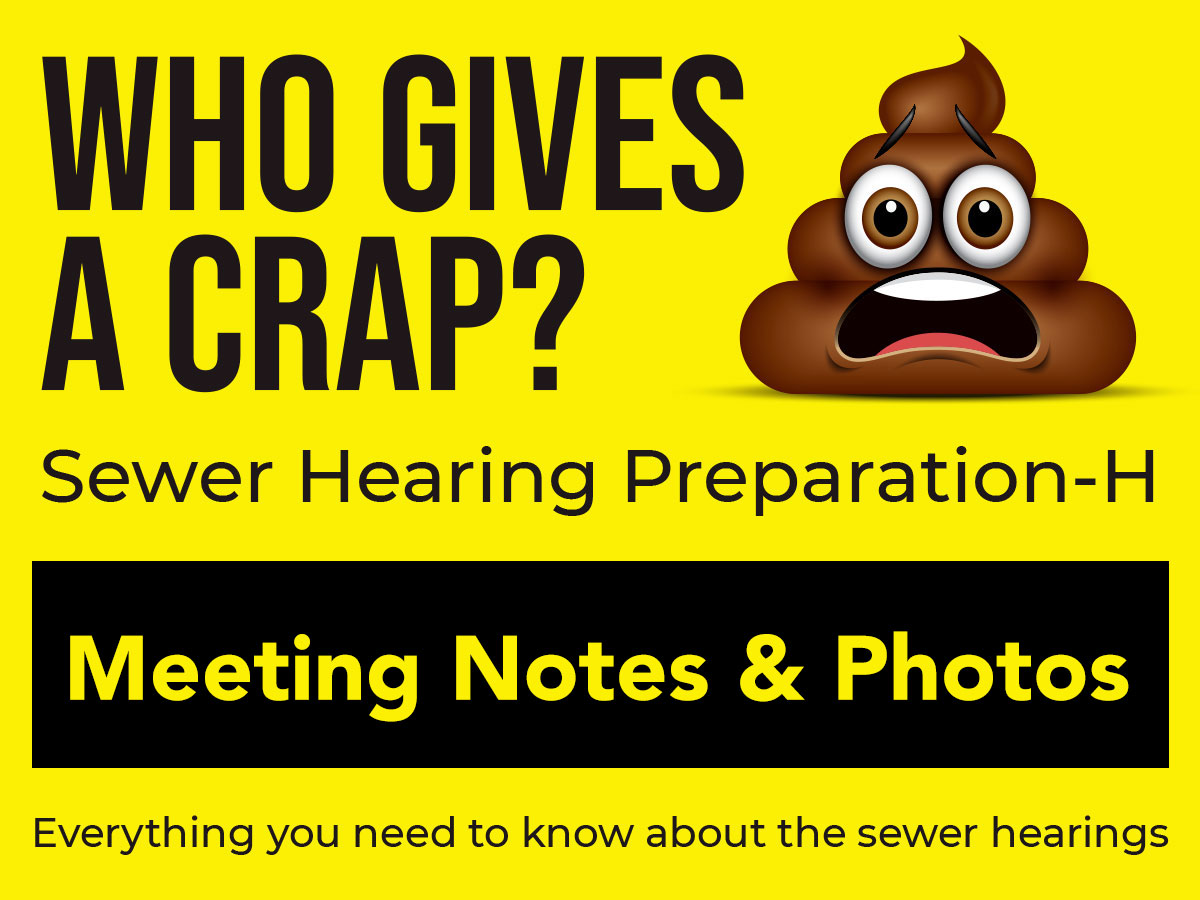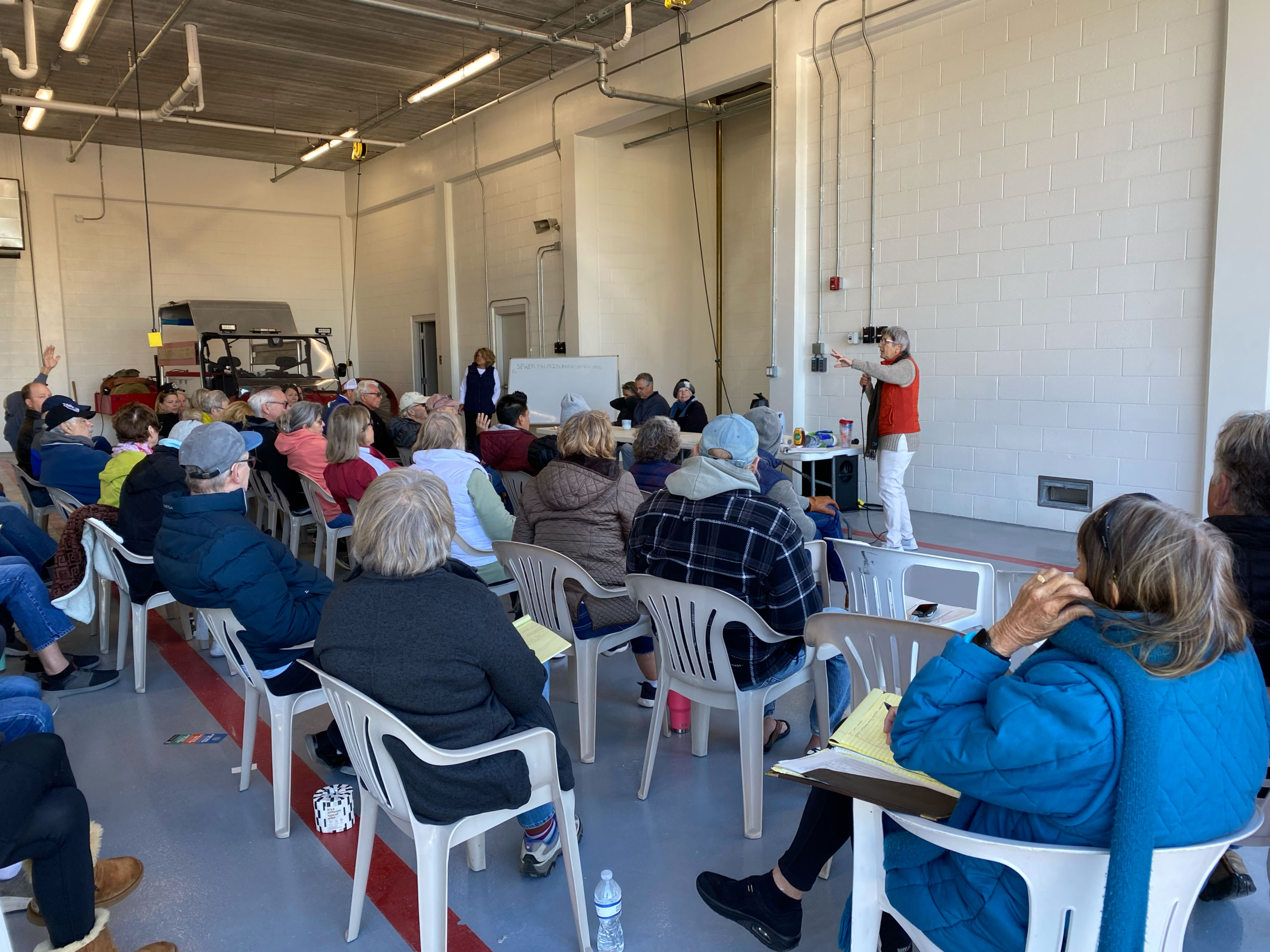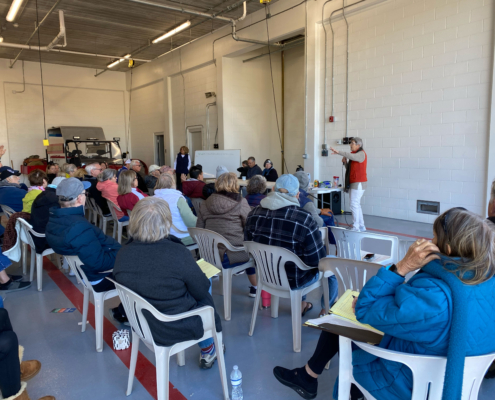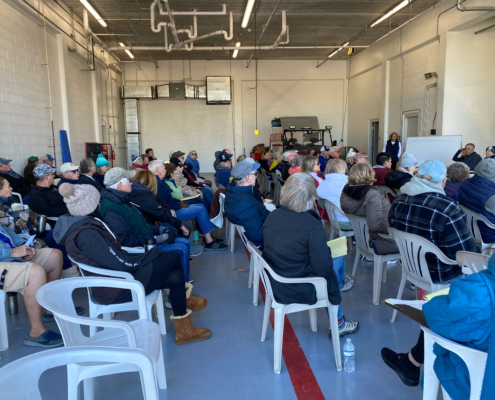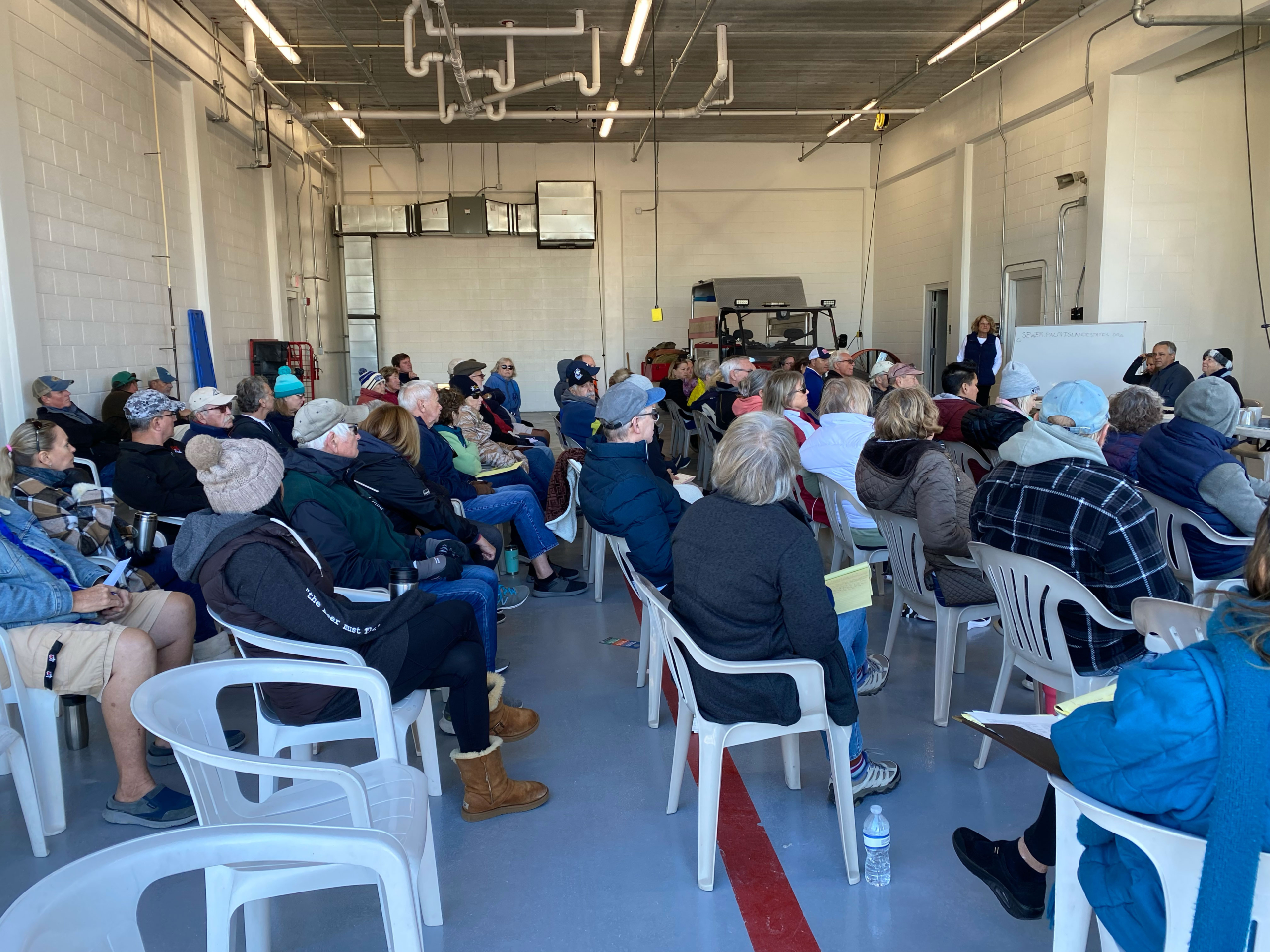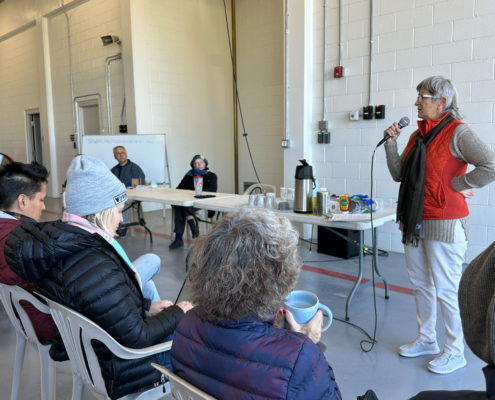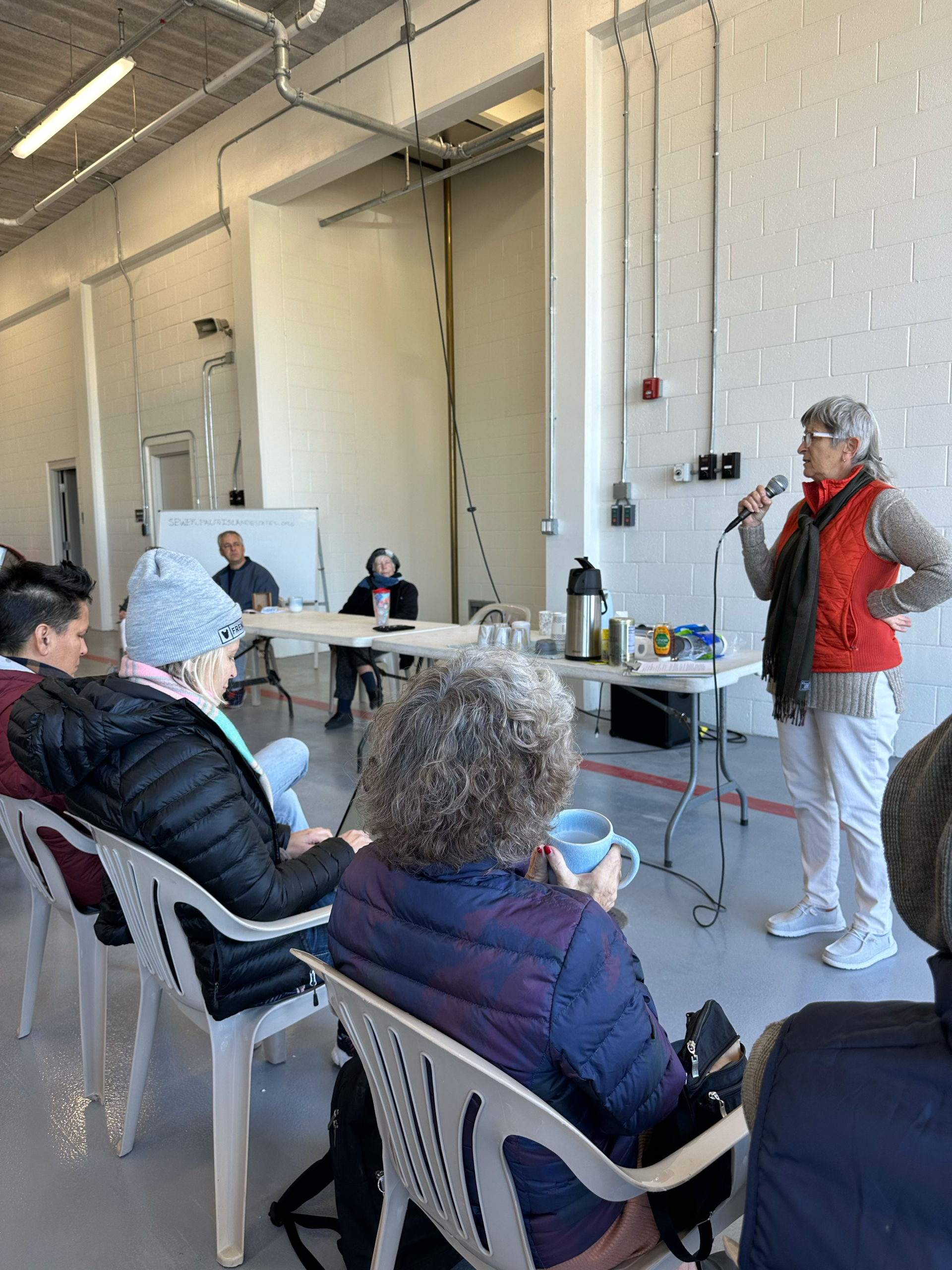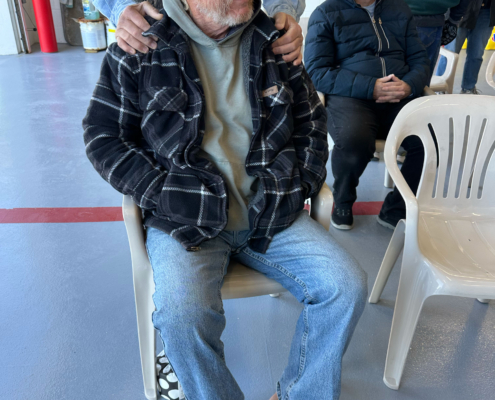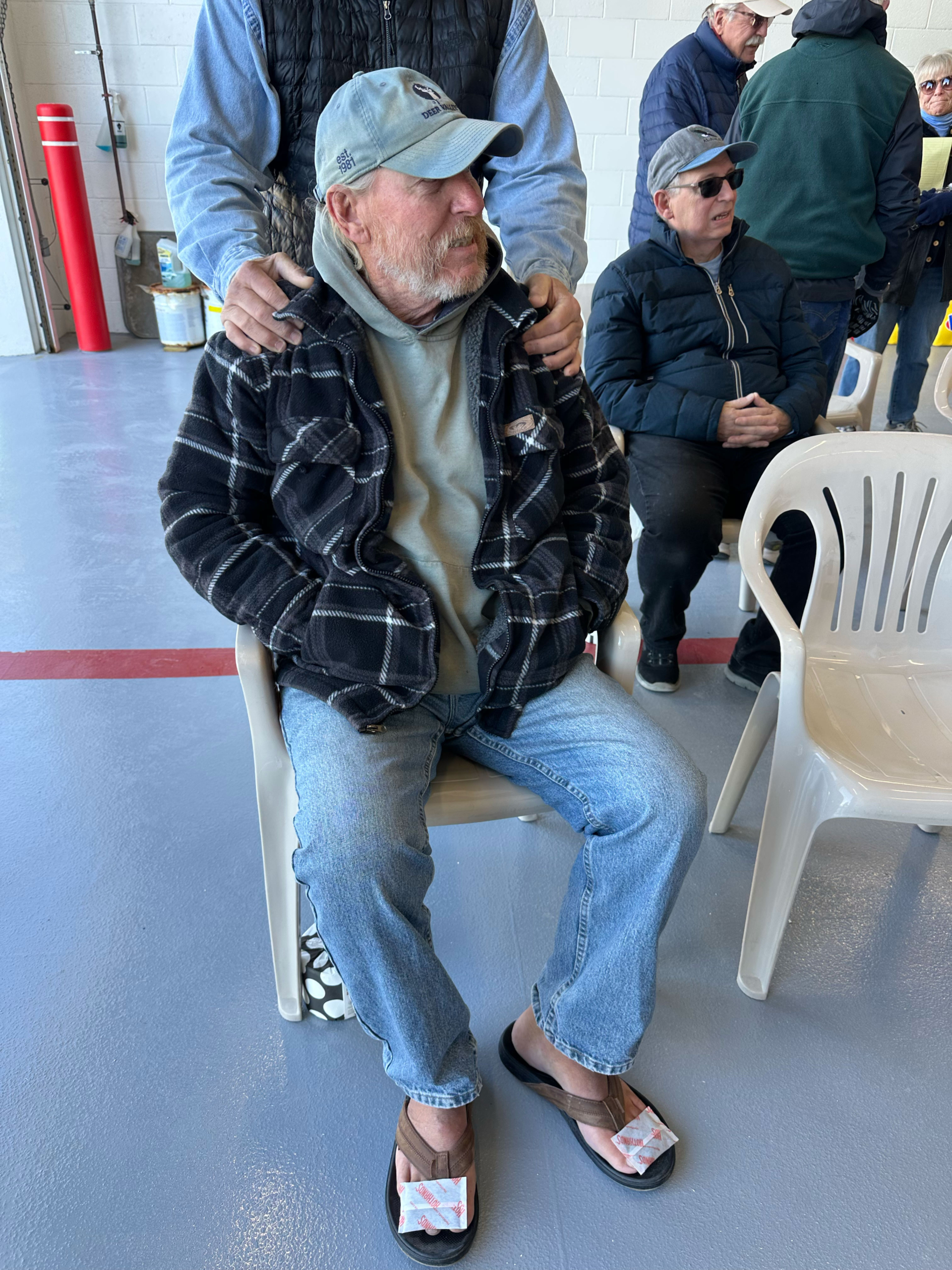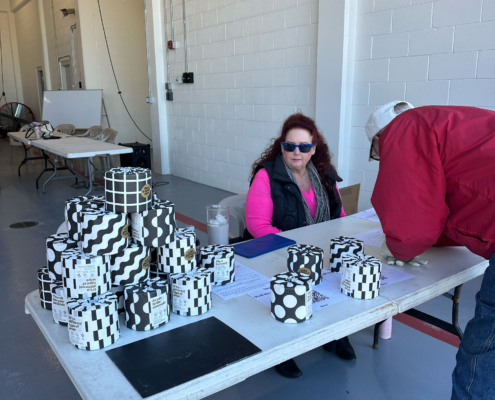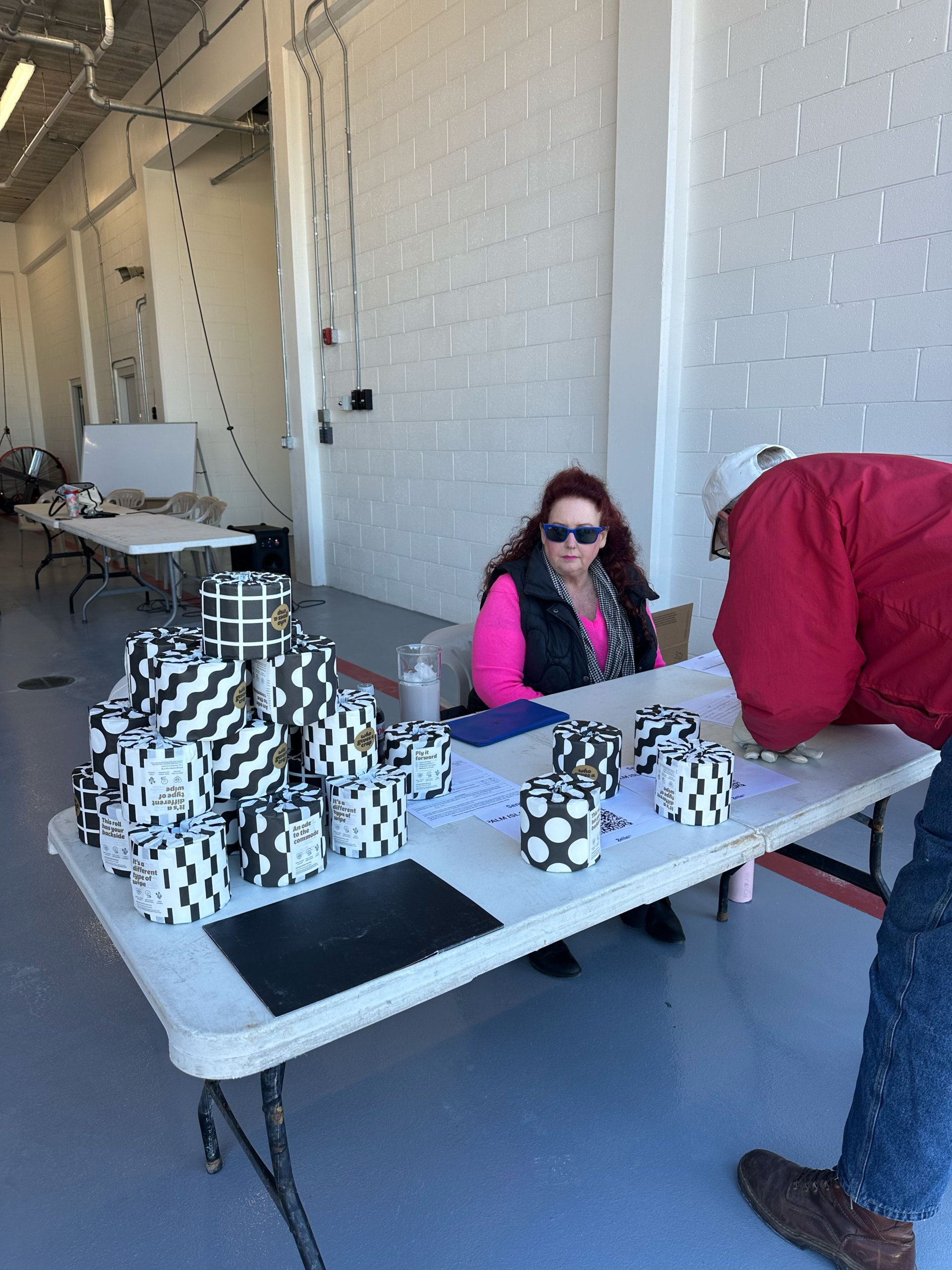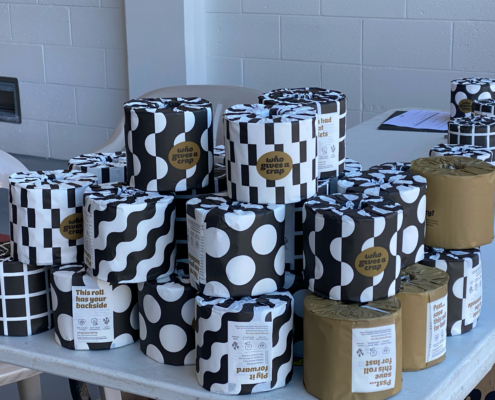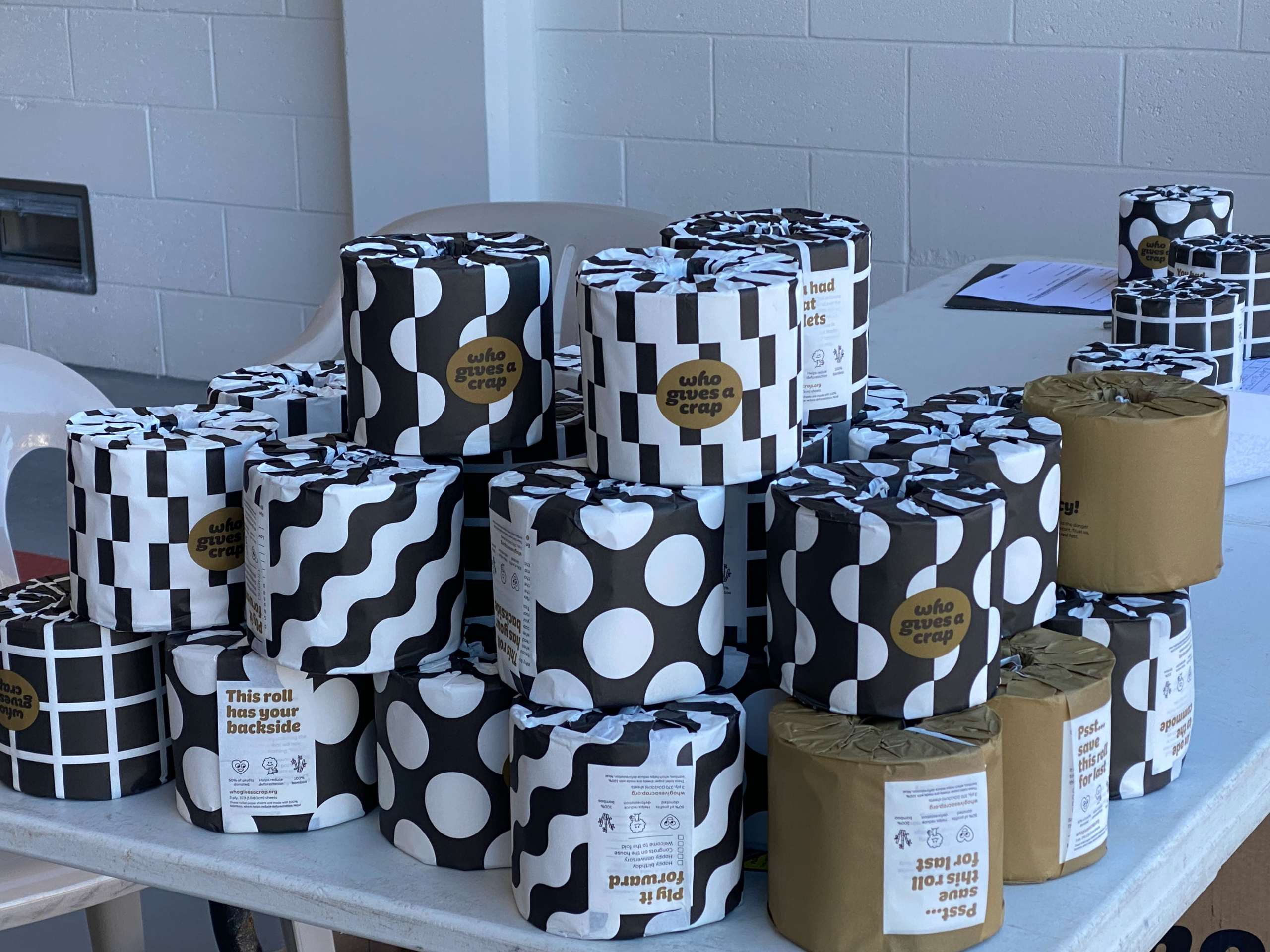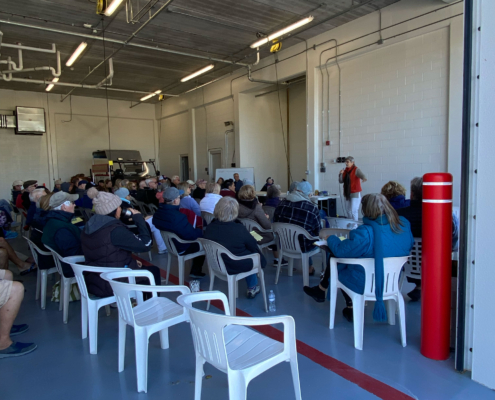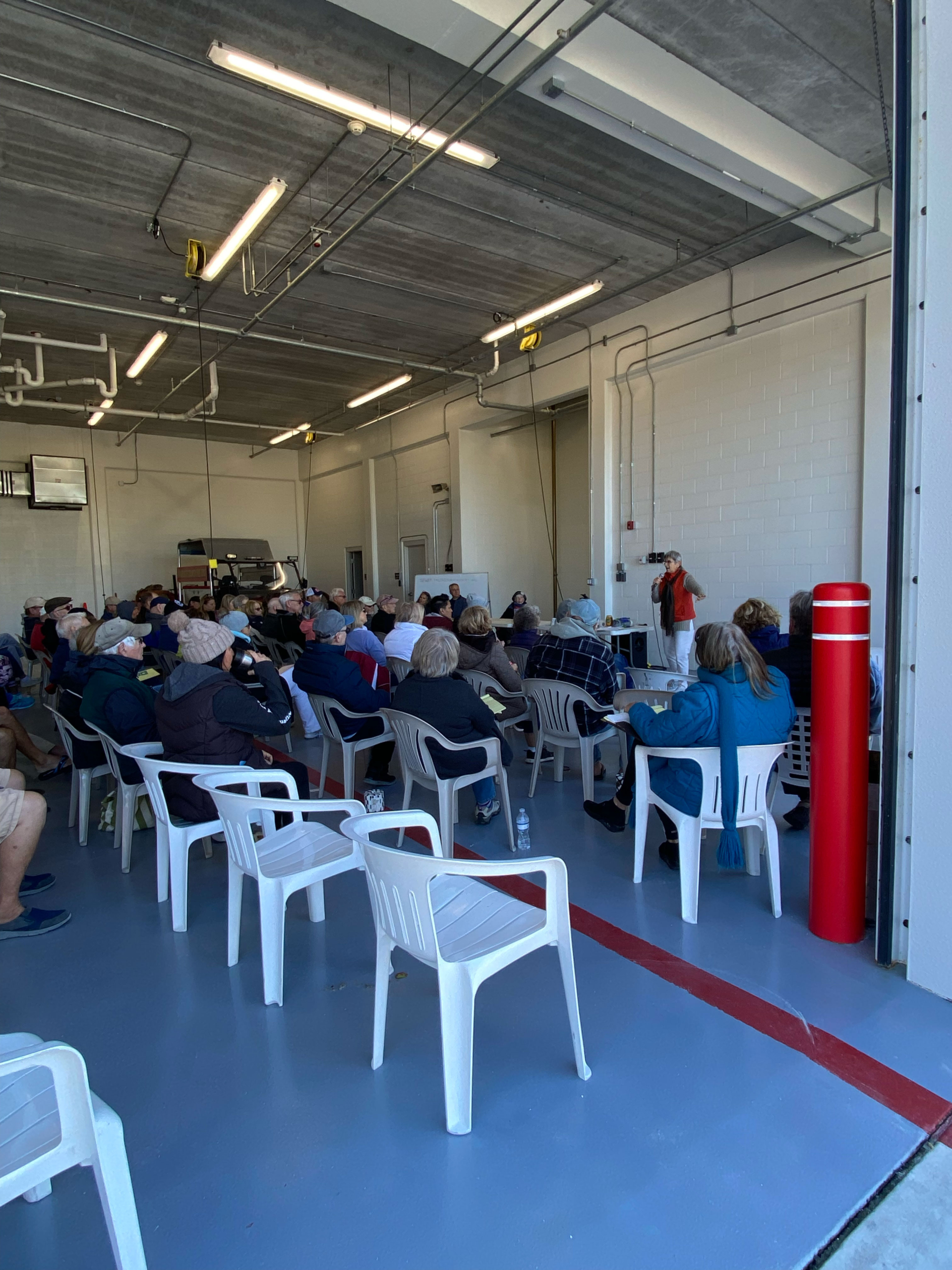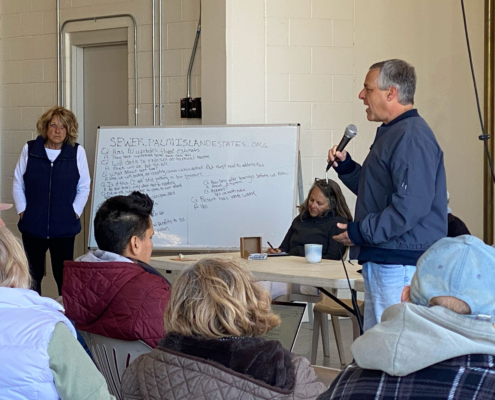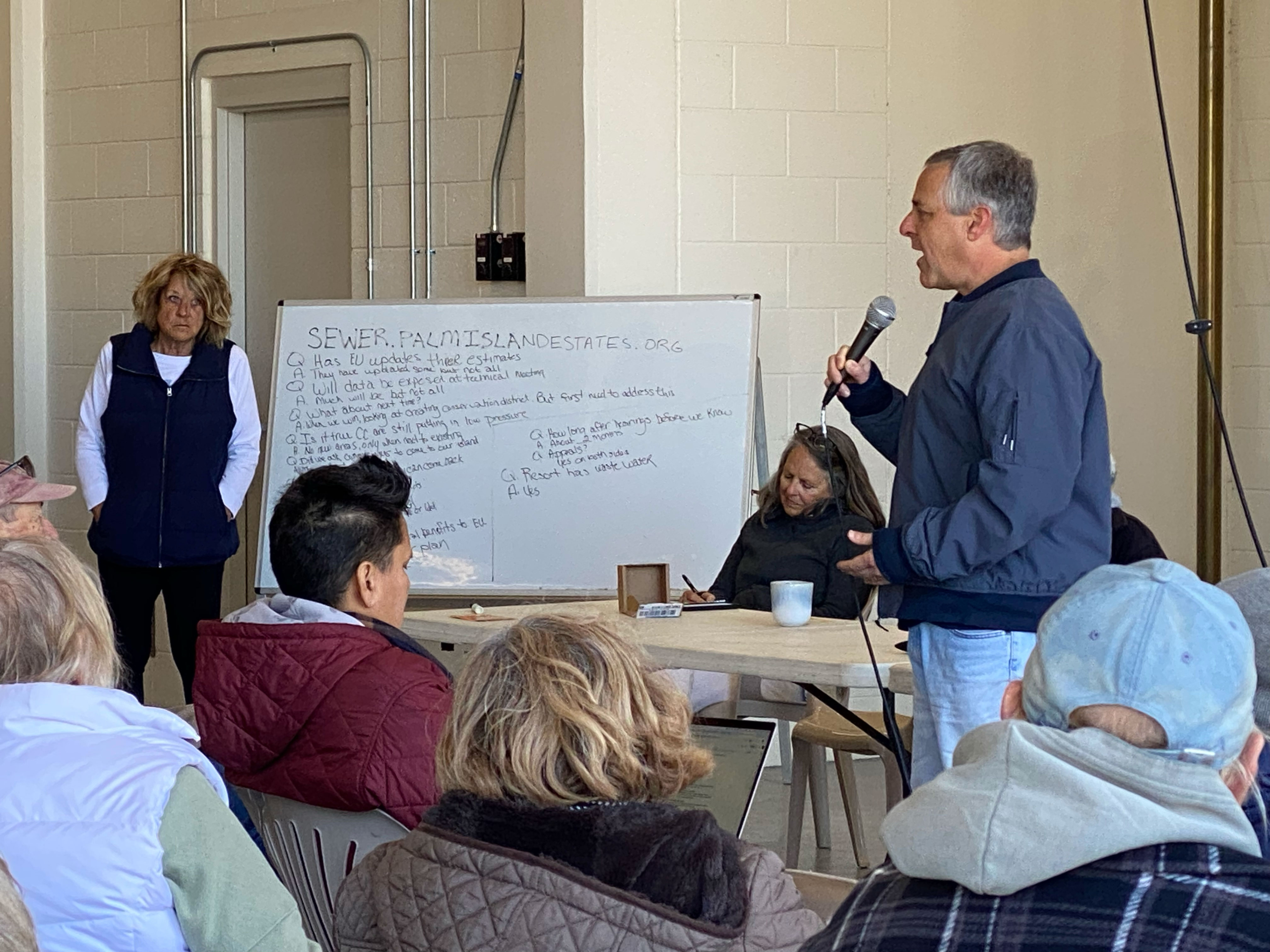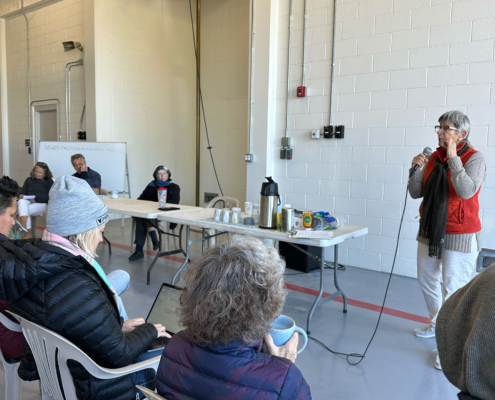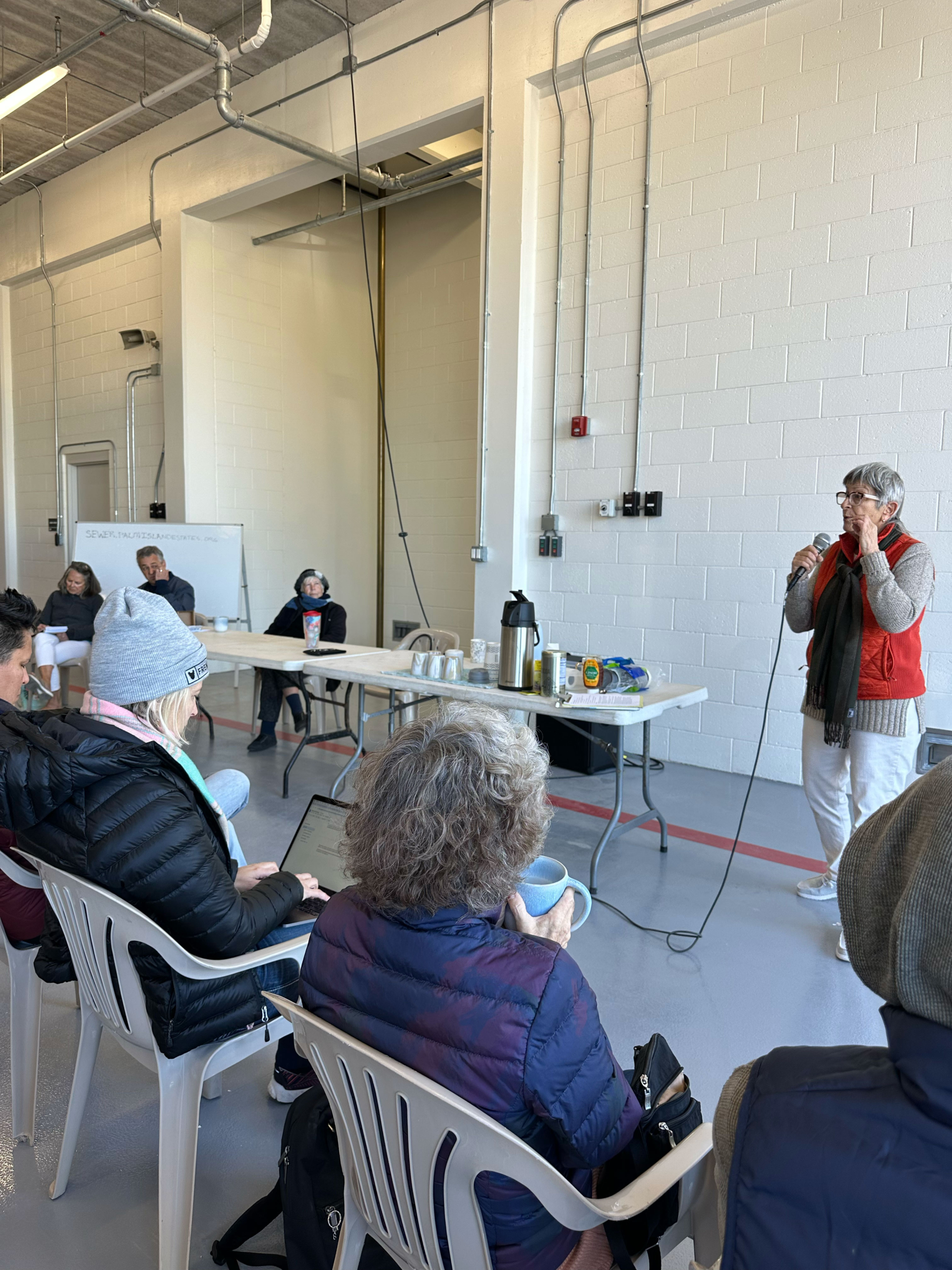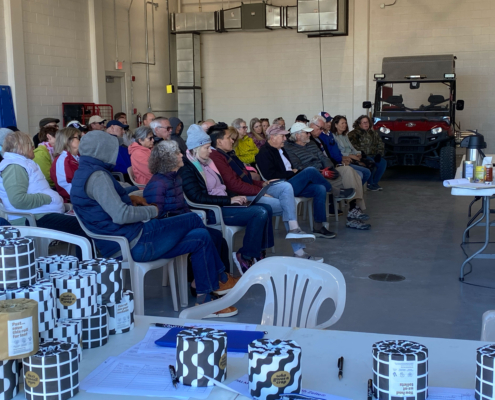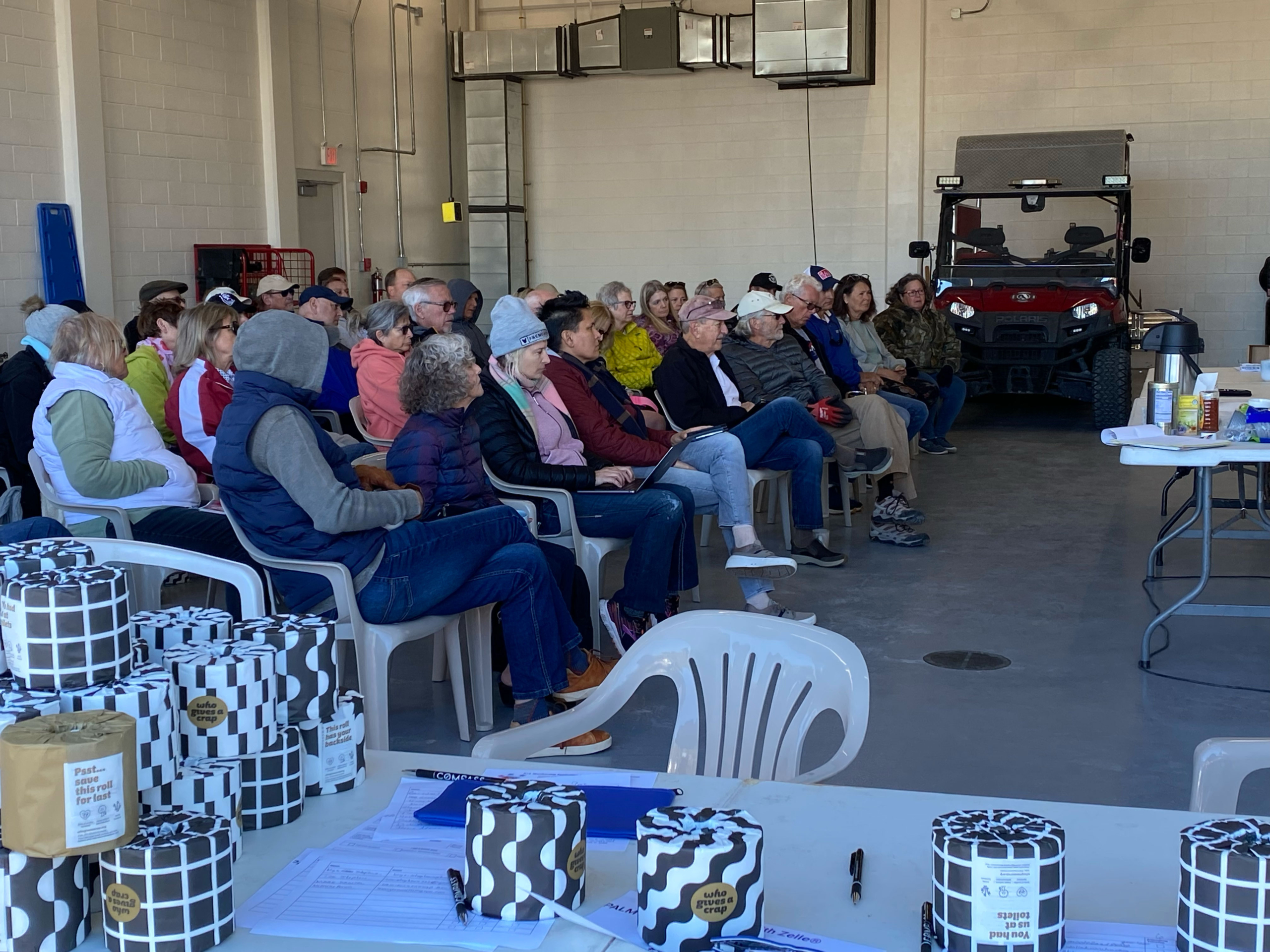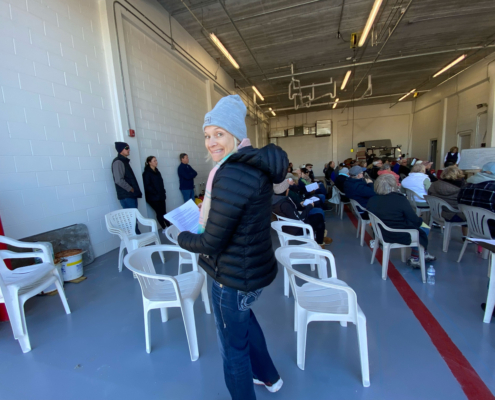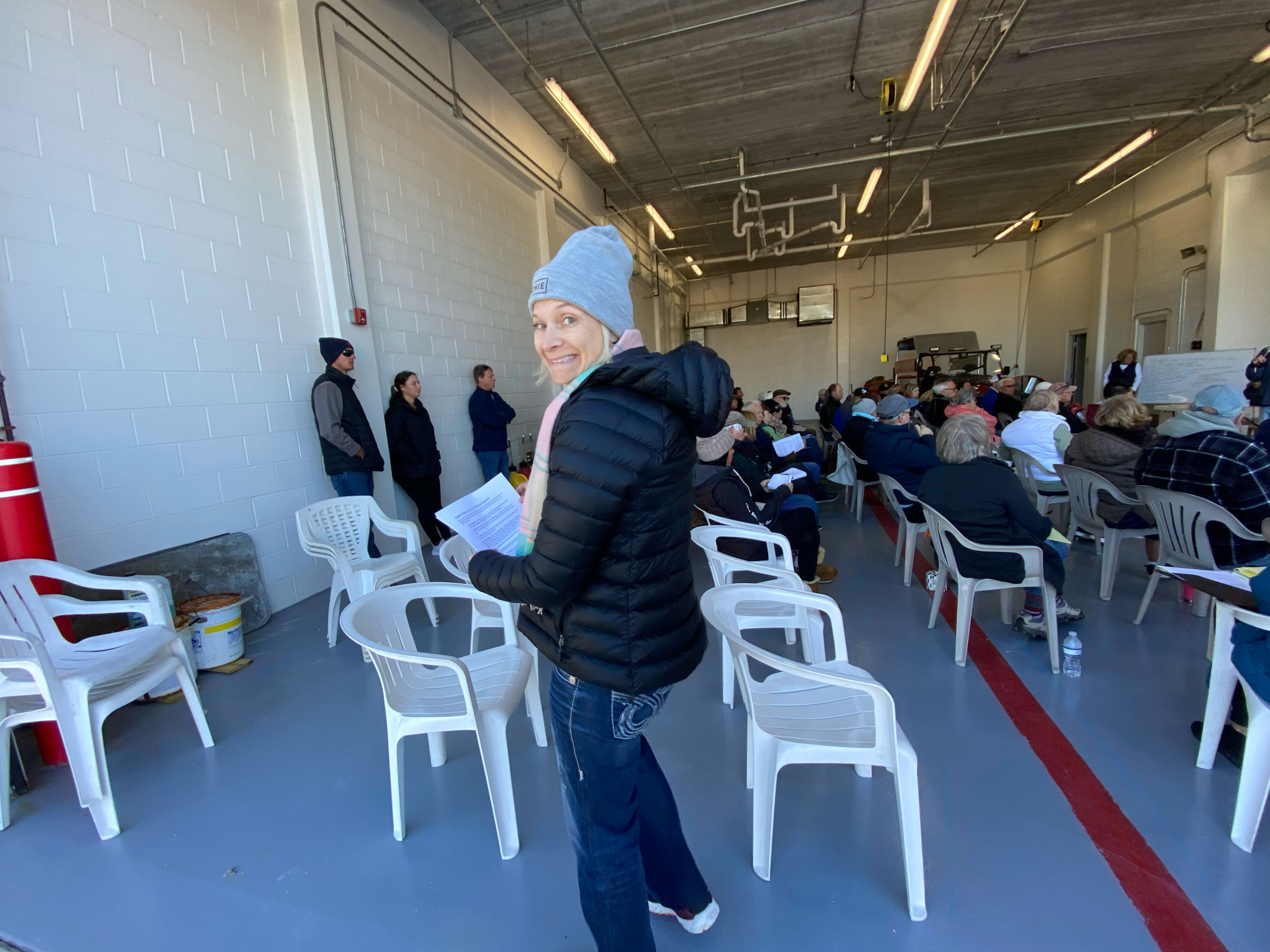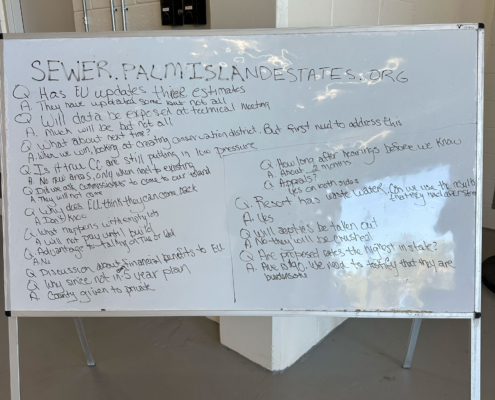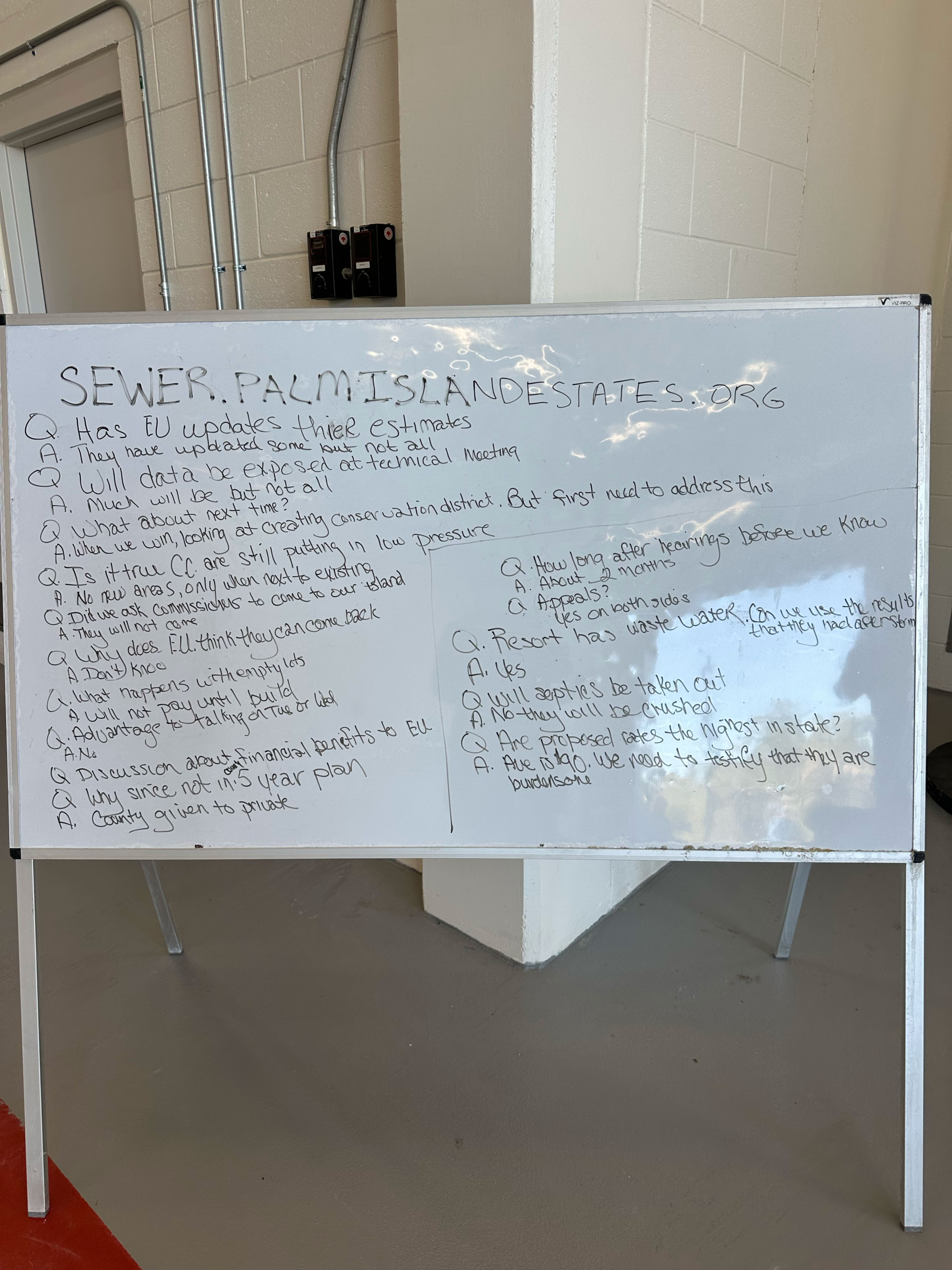Sewer Info-Central Meeting
This Town Hall style meeting, called an Info Central, took place on Saturday, Jan 25th, 10AM at the Palm Island Firehouse. Many islanders attended. This page contains the meeting notes from that event.
SPEAKER:
Terrie Weibley – VP of LGIPA
Last year, LGI came a little late to the objections about the sewer but this time they were onboard from the get go. President Michele Barnes couldn’t be here today, but VP Terrie Weibley came in her stead. She assured everyone that LGI is ready to fight with us.
SPEAKER:
Rob Robbins – Expert Witness for Water Quality
Rob holds a PhD in Marine Science Biology and Fisheries from the University of Miami. About a year ago, the sewer issue arose in the Cape Haze area where he lives, and Rob took the lead in gathering information about the proposed sewer system and spearheading efforts to oppose it.
Through his research, Rob discovered that the county justified the sewer proposal by claiming environmental concerns. However, when he investigated further, he found no actual evidence or data showing that the existing septic systems were causing environmental harm.
Rob uncovered that the county lacked data to support the need for a sewer system. Instead, they had hired consultants to produce findings that aligned with their goal of securing funding for the sewer project. Initially, the consultants conducted a random study of water pollutants, which showed levels below regulatory limits. When this didn’t support their narrative, they shifted to a more targeted approach, sampling areas near known septic violations. This cherry-picked data was then used to justify replacing all septic systems in the area. Rob concluded that the data was not only biased but also unscientific.
Rob’s community ultimately won their case opposing the county sewer system due to a lack of evidence showing a need for service.
SPEAKER:
Meryl Schaffer
Now is the time to act. The upcoming hearings are the most critical part of this process—a culmination of all the discussions and legal back-and-forth over the past months. This is our chance, as a community, to make our voices heard and let the commission know exactly where we stand.
Technical hearing
This is where the expert witnesses play a crucial role in presenting their case to the commission. There will be three commissioners present, two of whom participated in the previous hearings. After the final filings, all five commissioners will cast their votes.
The process begins with a brief introduction. Each expert will then have three minutes to summarize their written testimony, followed by a hostile cross-examination from the opposing side.
Attendance is vital. A strong community presence demonstrates to the commissioners how much we care and firmly oppose this proposal. Additionally, attending can help inform and inspire the three-minute speeches many will deliver during the service hearings, which start at 6 PM on Tuesday.
Sign-ups can only be done in person and are on a first-come, first-served basis. If you plan to attend on Wednesday starting at 9:30 AM, please sign up for that day to allow those who can only attend on Tuesday night the chance to speak.
On Wednesday, the service hearing will continue until everyone has had an opportunity to speak. If there is still technical hearing testimony to cover, it will resume and may extend to a spillover session on Thursday if necessary.
Customer Service Hearing
This is your opportunity as a ratepayer to speak directly to the commissioners, and your input carries significant weight in their decision-making process. Your speech will serve as sworn testimony, entered into the official record, where you affirm you are speaking the truth as you know it and from the heart. This testimony can be referenced by our lawyers in their post-hearing briefs, especially if you raise a unique point that hasn’t been addressed by others.
You will have three minutes to speak. Begin by introducing yourself, stating which island you live on, and whether you are a full-time resident.
During the last hearing, the commission noted how professional our community was, the strong attendance, and the impressive credentials of those who participated. Let’s continue to make that same impactful impression.
There’s a list of Tips for Writing Your Speeches available on the website that was distributed at the meeting, which was reviewed in detail. Please follow these guidelines.
The only significant change since the last hearing is the storms. Let them know that implementing this plan now would place an overwhelming burden on our community after these hurricane disasters. EU is now claiming that 140 septic systems were damaged, but this figure isn’t backed by reliable data. The commission should hear if your septic system wasn’t damaged, or if it was damaged but not leaking. And if it was working, how this gave you the ability to begin your recovery without electricity.
The main reasons we don’t want the sewer (learn more)
- No need for sewer
- Cost is too high
- We don’t want a low pressure system
- We don’t want a private, for-profit sewer provider
You may also want to address the misleading letter sent by the EU in January. The realistic likelihood of EU obtaining state subsidies for a private utility is extremely low, and the commission should be aware of this.
Another important point to mention is that the county recently stopped installing low-pressure systems because their maintenance and upkeep costs have proven to be too high. Additionally, Hillsborough County is currently in the process of replacing all their low-pressure systems, which highlights the inefficiency and long-term challenges associated with this approach. These facts further emphasize the need for the commission to reconsider this proposal.
Q&A Session
Q: If nothing has changed from the EU since last time, have they updated their financials?
They’ve used some of the old numbers and updated others. However, they haven’t accounted for certain costs, such as permitting, gopher tortoise removal, or barge expenses.
Q: All the county info about not using low-pressure systems, will that be covered in the technical hearing?
Much of it was included in prefiled testimony, but not all of it will be repeated during the hearings. This topic can still be brought up during the service hearing testimonies.
Q: What are we doing to prevent this from happening again?
PIE and LGI are actively working on this. We’re exploring a similar approach to Boca Grande’s Conservation District Act, which allows them some control over their land use. We need a bit more time to finalize details and are planning an info-central event in February to provide updates.
Q: Online, Charlotte County is saying it is still installing low-pressure systems. What does that mean?
They are only completing existing projects, not starting new ones.
Q: Why would the County allow EU to install sewer?
This isn’t the county’s decision. It’s being handled by the state regulatory body, the PSC.
Q: Last time, the commissioners had never been to our island. Did we invite them?
Yes, we have invited them, but they most likely won’t come. It would be similar to a judge visiting a crime scene.
Q: This is awful timing. Is this designed to break us?
We don’t know what their intentions are or why the case has resurfaced now.
Q: How are empty lots handled?
When a lot is developed, the builder must install whatever septic or sewer system is in place at that time. There are no fees on empty lots until someone decides to build on them.
Q: Is there an advantage to speaking on Tuesday night versus Wednesday?
No, there’s no advantage. However, some people can only speak on Tuesday, so if you’re available on Wednesday, please consider speaking then.
Q: Why are they doing this? What is their motivation?
Utilities are a good business. All costs are guaranteed to be covered, and EU is assured up to 8% profit annually. Additionally, customers are guaranteed since connecting to the sewer system is mandatory.
Q: What about easements?
The sewer system must be installed close to your house with access to electrical and the main sewer pipes. Additionally, you will need to provide EU with an up to 15-foot-wide easement. This space cannot be built on, driven over, or otherwise used.
Q: Weren’t we on a plan to install sewers 10 years ago?
No. Any private company can apply for a permit to install a sewer. In the last hearing, it was proven that we are not part of the County’s master sewer plan. While we were listed as “needed” in the master plan, we were not included in the capital improvement plan.
Q: How long until we know the results?
After this week’s hearings, attorneys have a month to submit post-hearing briefs. The commissioners will then vote at a post-hearing conference, so we expect to know the results by April.
Q: What if we lose?
We can appeal.
Q. Last time, after our 3-minute speech, they asked some of us “What if the County were doing the sewer? Would you oppose it?” How should we answer that?
You should answer with whatever feels true and honest for you. That said, here are several appropriate answers to this question:
- I don’t know.
- Yes, I would oppose it. I don’t want a sewer on the island.
- No, I would not oppose the county putting in a sewer.
- Yes, I would oppose it because there has been no proven need.
- Yes, If the County were putting forth this EXACT proposal, I would oppose it for the same reasons we are opposing the current one.
- It depends. If the County proved a need and then proposed their own solution, I would evaluate the specifics of that proposal at that time.
Q: I live in the colony, and our septic is full of sand. Will this be held against us?
Yes, they are using storm damage as part of their justification for the need. They will use this against us, but we can argue that a low-pressure sewer system would also have been washed away under similar conditions.
Q: Don’t septic systems fail to remove nitrogen from water? What about wastewater plants?
On-site septic systems remove about as much pollutant content (nitrates, bacteria, etc.) as a wastewater treatment plant that is NOT equipped with Advanced Wastewater Treatment (AWT) technology, like the one in Rotonda West. While both systems (treatment plants and septic systems) remove bacteria effectively, they both only remove about 20-30% of the nitrates and nitrogen. By contrast, AWT removes up to 80% of nitrates and nitrogen. AWT is available for both wastewater treatment plants AND on-site septic systems. This up-to-date treatment technology for septic systems has been installed at several new homes on the Island.
Q: Would we have to remove our septic systems?
No, but your current tank would be crushed and filled, and you wouldn’t be able to place a new tank in the same location.
Q: Have the rates been addressed? Is $250/month the highest in Florida?
The state average for sewer and water is $94/month, making $250/month unaffordable, especially on a barrier island where costs are likely to be even higher. This is why it’s critical to attend the service hearings and make your voice heard.
